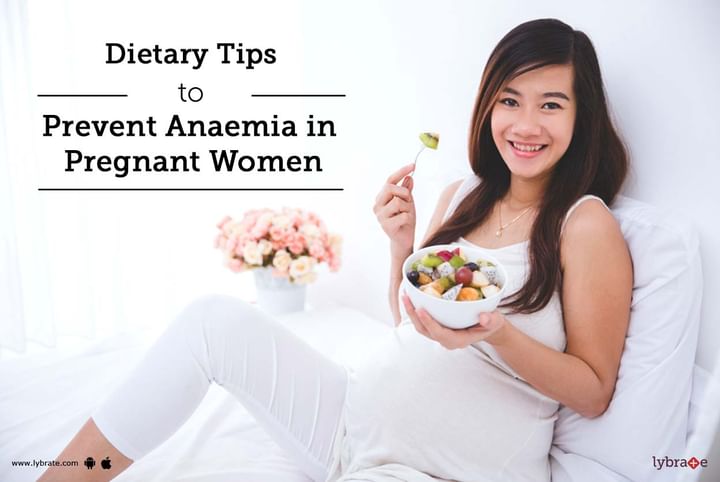Dietary Tips to Prevent Anaemia in Pregnant Women
Your body goes through drastic changes when you are pregnant. Your body makes more blood during pregnancy; for instance, prior to pregnancy, your body made approximately 5 litres of blood, but now it produces 7 to 8 litres of it.
Producing excess red blood cells requires haemoglobin, which in turn requires plenty of folate, iron and vitamin B12. If there is a deficiency in any of these requirements, you might develop anaemia.
Anaemia is a condition, which is characterized by a lack of red blood cells in the body. The risks of becoming anaemic during pregnancy include:
- Being extremely fatigued
- Miscarriages, premature birth, or low birth-weight
- The baby can inherit anaemia from the mother
- The child can have certain developmental delays
- Postpartum depression (post-childbirth depression)
How it can be prevented?
To prevent such risks, it is important to implement the proper diet. Here are some dietary tips to prevent anaemia during pregnancy:
1. Consume iron-rich foods: Foods that provide you with the best source of iron are
- Poultry and eggs
- Dark green and leafy vegetables (for example: spinach, broccoli and kale)
- Seeds and nuts
- Beans and lentils
- Tofu
- Beetroot
- Ripe bananas
2. Don't forget the supplements: Foods are great sources of the nutrients you require, but they may be lacking at times. Ask your doctor for supplements like vitamin, folic acid and iron supplements mostly. Consuming supplements before pregnancy can go a long way in preventing anaemia.
3. Folic acid is important: Folic acid is very important for pregnant women. You must consume 400 milligrams of it to prevent anaemia and birth defects in babies. Foods that are rich in folic acid include:
4. Vitamins are crucial: Vitamin C helps in iron absorption which boosts haemoglobin production. Some foods rich in vitamin C include
- Citrus fruits
- Strawberries
- Kiwis
- Tomatoes
- Bell peppers
5. Be vigilant while cooking: Sometimes while cooking foods, the wrong method can strip them of their iron content. So be careful not to fry, boil or stew such foods too much. Certain foods are best consumed raw; read the labels properly if in doubt.
6. Abstain from certain habits: Alcohol, tea, cigarette and coffee hinder iron absorption. So stop consuming them if you are trying to conceive or have conceived.



+1.svg)
